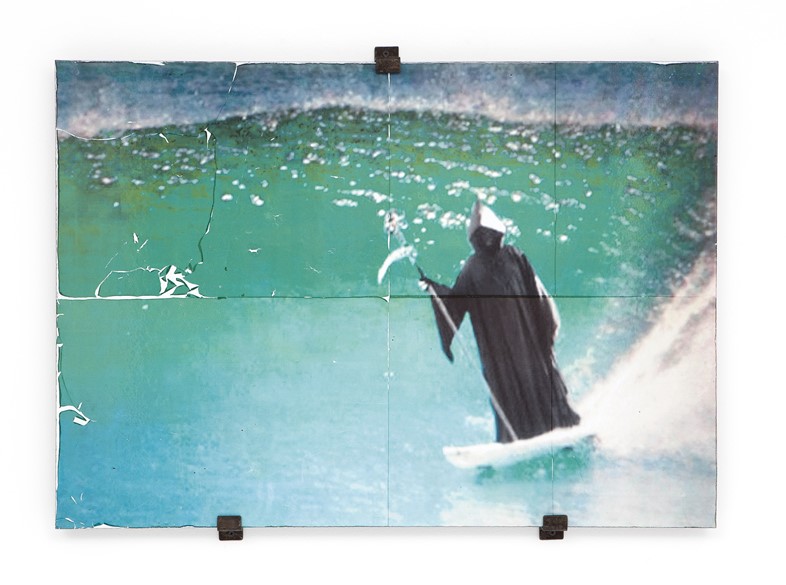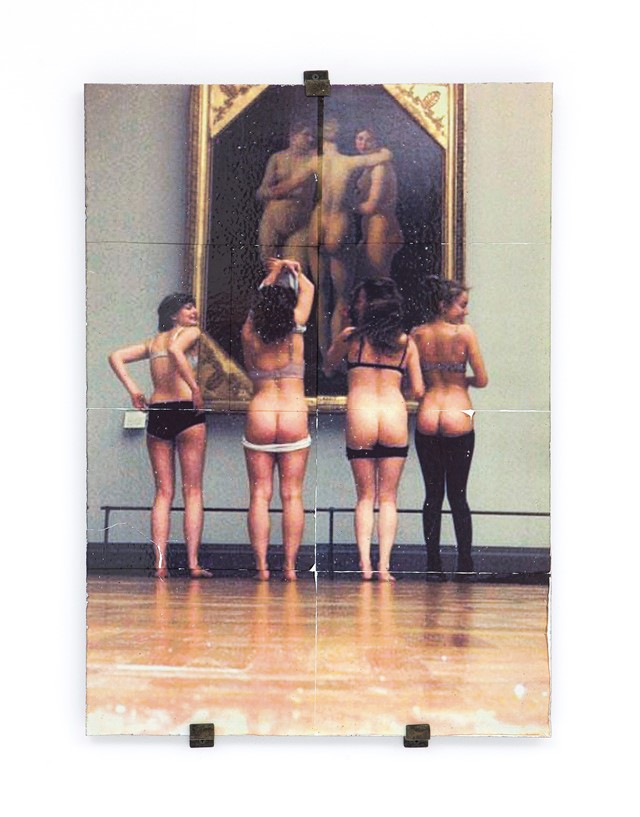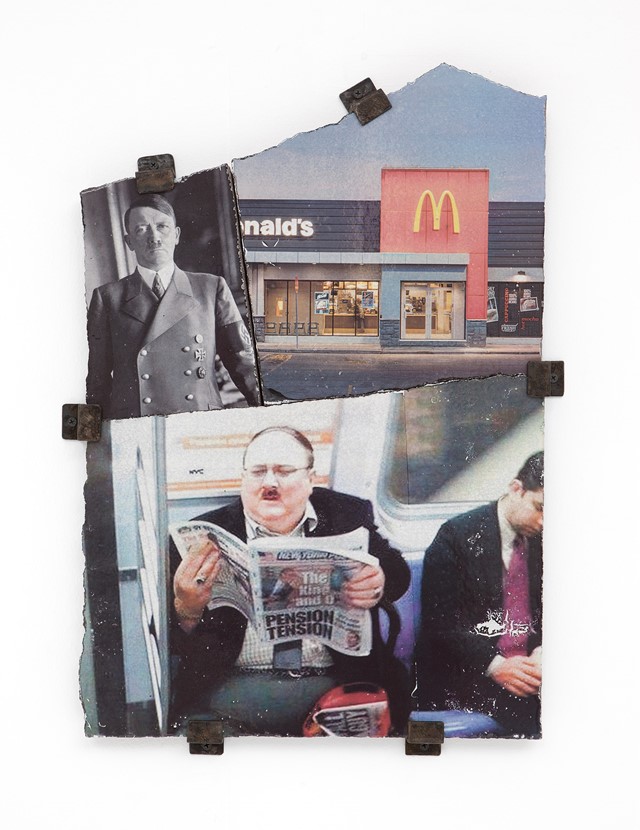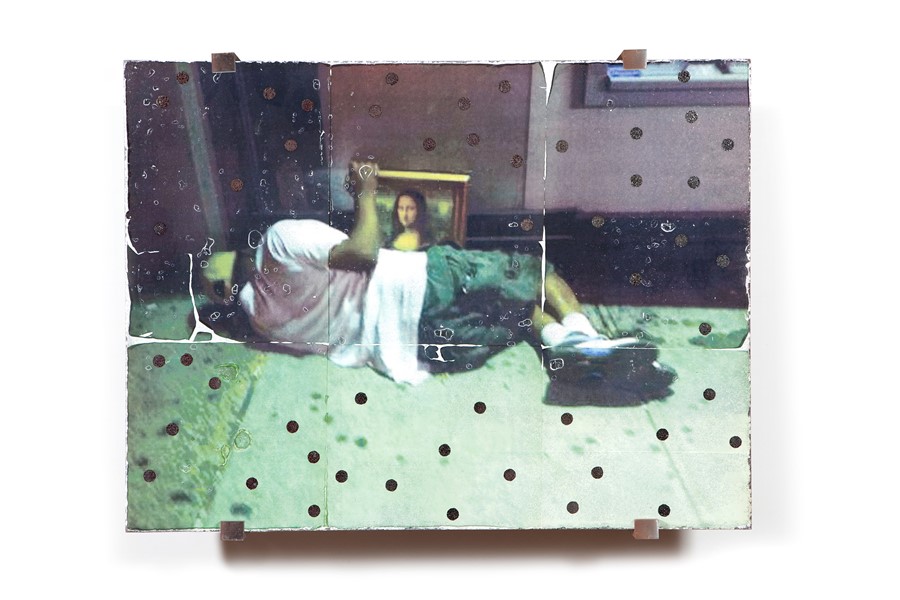“I try to take a stand in our fast-paced, hyper-digital era”: Thomas Mailaender talks Postmodernism and nostalgia ahead of his new London exhibition
“We live in a world where there is more and more information, and less and less meaning,” philosopher Jean Baudrillard wrote in 1994. The suffocating, uncontrollable proliferation of digital mass media and visual consumerism, he argued, would create a society where reality and simulation could no longer be told apart – a world where the illusory excess of reality would end up killing reality itself.
Fast-forward two decades, and the overpowering advent of internet culture has indisputably fulfilled the French Postmodernist’s prophecy, changing not only the ways in which we view the real, but also the lens through which we understand and consume art. Blurring the lines between photography, collage and installation, Paris-based artist Thomas Mailaender is quietly working to dismantle modernity’s obsession with fast, easy, one-dimensional image-making. “I try to take a stand in our fast-paced, hyper-digital era,” he tells AnOther. “The digital detaches us from what’s palpable, and in my work aim to go back to something that’s concrete, tangible.”

His latest solo exhibition, held at London’s Michael Hoppen Gallery, includes a cross-section of works, ranging from imagery printed on found ceramics and lava stone using an extremely durable process created for photographs to be printed on gravestones, to the series titled Skin Memories, in which Mailaender developed techniques for printing on leather during a residency at LVMH Métiers d’Art. “I like to use very intricate, elaborate processes to create an image, and remind people of the materiality and permanence of it,” explains the Marseille-born artist. “I love walking around flea markets where you can find hidden treasures that people left behind – a decade ago, you could stumble across a Hockney image that way whereas now, most of people’s memories and objects of sentimental value will be stored on hard drives. I want to preserve a testimony of the past.”
A clear sense of nostalgia permeates Mailaender’s visual style, which nevertheless remains infused with humour and a distinct tonal lightness, paying homage to the history of photography without taking itself too seriously. “In this show, I include something I call the Fun Archaeology which is a collection of objects I’ve been gathering for over ten years,” argues the artist. “Photo albums, CD-ROMs, VHS tapes, collages… all sorts of documents that have today been replaced through digital manipulation – I feel very nostalgic for that era when you could just hold an object that had some personal or symbolic significance attached to it.”

Informed by the practices of 1980s conceptual artists John Baldessari and Hans-Peter Feldmann, Mailaender’s archive of playful, eccentric, often amateur juxtapositions accumulated over the years uses humour as provocation - it raises questions not only about the role of the artist, but also about the absurdity of the everyday and the pretensions of the art world. “My work leans towards satire rather than critique, but ultimately, what I want to tell people is simply to pause and take time,” Mailaender continues. “In the age of Instagram, our attention spans have become so limited – we can’t spend more than two seconds looking at something without already craving the next thing. It’s scary!”
A mixture of whimsical nostalgia, pop culture, an Art Brut-inspired philosophy and laborious technical craftsmanship, Mailaender’s work invites the viewer to slow down and do a reality check, in a world which makes staying visually aware and grounded in our cultural surroundings an ever-growing challenge.

Thomas Mailaender runs until May 26, 2018 at Michael Hoppen Gallery, London.
